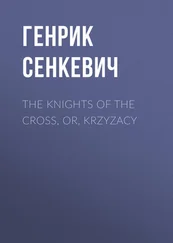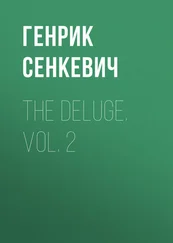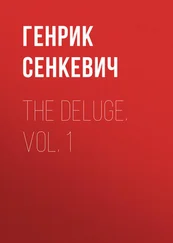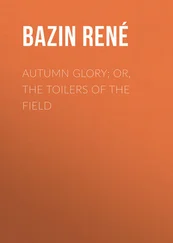Генрик Сенкевич - On the Field of Glory
Здесь есть возможность читать онлайн «Генрик Сенкевич - On the Field of Glory» — ознакомительный отрывок электронной книги совершенно бесплатно, а после прочтения отрывка купить полную версию. В некоторых случаях можно слушать аудио, скачать через торрент в формате fb2 и присутствует краткое содержание. Жанр: foreign_antique, foreign_prose, на английском языке. Описание произведения, (предисловие) а так же отзывы посетителей доступны на портале библиотеки ЛибКат.
- Название:On the Field of Glory
- Автор:
- Жанр:
- Год:неизвестен
- ISBN:нет данных
- Рейтинг книги:3 / 5. Голосов: 1
-
Избранное:Добавить в избранное
- Отзывы:
-
Ваша оценка:
- 60
- 1
- 2
- 3
- 4
- 5
On the Field of Glory: краткое содержание, описание и аннотация
Предлагаем к чтению аннотацию, описание, краткое содержание или предисловие (зависит от того, что написал сам автор книги «On the Field of Glory»). Если вы не нашли необходимую информацию о книге — напишите в комментариях, мы постараемся отыскать её.
On the Field of Glory — читать онлайн ознакомительный отрывок
Ниже представлен текст книги, разбитый по страницам. Система сохранения места последней прочитанной страницы, позволяет с удобством читать онлайн бесплатно книгу «On the Field of Glory», без необходимости каждый раз заново искать на чём Вы остановились. Поставьте закладку, и сможете в любой момент перейти на страницу, на которой закончили чтение.
Интервал:
Закладка:
To warm the guests who had come out of cold they brought heated, spiced wine immediately. They began then to discuss the recent peril. Pan Gideon had great praise for Pan Stanislav, who, instead of sitting in a warm room at home, had saved people on the highroad without regarding the terrible frost, and the toil, and the danger.
"Of a truth," said he, "thus, in old days, did those famous knights act, who, wandering through the world, saved men from cannibals, dragons, and various other vile monsters."
"If any man of them saved such a marvellous princess as this one," added Stanislav, "he was as happy at that time as we are this minute."
"No man ever saved a more wonderful maiden! True, as God is dear to me! He has told the whole truth!" cried the four Bukoyemskis with enthusiasm.
Panna Anulka smiled in so lovely a fashion that two charming dimples appeared in her cheeks, and she dropped her eyelids.
But the compliment seemed over bold to Pan Gideon, for his ward, though an orphan without property, was descended from magnates, hence he changed the conversation.
"But have your graces," asked he, "been moving long on the road in this fashion?"
"Since the great snows fell, and we shall keep on till the frost stops," said Stanislav.
"And have ye killed many wolves?"
"Enough to give overcoats to all of us."
Here the Bukoyemskis laughed as loud as if four horses were neighing, and when they had quieted a little, Mateush, the eldest one added, -
"His Grace the King will be proud of his foresters."
"True," said Pan Gideon. "And I have heard that ye are head foresters in the king's wilderness in these parts. But do not the Bukoyemskis originate in the Ukraine?"
"We are of those Bukoyemskis."
"Indeed-indeed-of good stock, the Yelo-Bukoyemskis are connected there with even great houses."
"And with St. Peter!" added Lukash.
"Eh!" said Pan Gideon. And he began to look around with suspicion and sternly at the brothers to see if they were not trying to jest with him. But their faces were clear, and they nodded with earnest conviction, confirming in this way the words of their brother. Pan Gideon was astonished immensely, and repeated: "Relatives of Saint Peter? But how is that?"
"Through the Pregonovskis."
"Indeed! And the Pregonovskis?"
"Through the Usviats."
"And the Usviats through some one else," said the old noble, with a smile, "and so on to the birth of Christ, the Lord. So! It is a great thing to have relatives in a senate down here, but what must it be to have kinsmen in the heavenly assembly-promotion is certain in that case. But how have ye wandered to our wilderness from the Ukraine, for men have told me that ye are some years in this neighborhood?"
"About three. Rebellions have long since levelled everything in the Ukraine, and boundaries have vanished. We would not serve Pagans in partisan warfare, so we served first in the army and then became tenants till Pan Malchinski, our relative, made us chief foresters in this place."
"Yes," said Pan Serafin, "I wondered that we found ourselves side by side in this wilderness, for we are not of this country, but the changing fortunes of men have transported us hither. The inheritance of your mightiness," here he turned to Pan Gideon, "is also, as I know, in Rus near the castle of Pomorani."
Pan Gideon quivered at this, as if some one had struck an open wound in his body.
"I had property there, and I have it there still," said he, "but those places to me are abhorrent, for misfortunes alone struck me there, just like thunderbolts."
"The will of God," said Pan Serafin.
"It is vain to revolt against that; still, life in those regions is difficult."
"Your grace, as is known, has served long in the army."
"Till I lost my arm. I avenged my country's wrongs, and my own there. And if the Lord Jesus will pardon one sin for each head that I took from a pagan, hell, as I trust, will never be seen by me."
"Of course not, of course not! Service is a merit, and so is suffering. Best of all is it to cast gloomy thoughts from us."
"Gladly would I be rid of them, still, they do not leave me. But enough! I am a cripple at present, and this lady's guardian. I have removed in old age to a silent region which the enemy never visits. I live, as you know, in Belchantska."
"That is well, and I have acted in like manner," added Pan Serafin. "Young men, though it is quiet now on the borders, hurry off to Tartar trails in the hope of adventure, but it is ghastly and woful in places where each man is mourning for some one."
Pan Gideon put his hand to his forehead where he held it rather long, till at length he said sadly, -
"Only a peasant or a magnate can live in the Ukraine. When an onrush of pagans strikes that country the peasant flees to a forest and can live for some months in it like a wild beast; the magnate can live, for he has troops and strong castles of his own to protect him. But even then-the Jolkievskis lived in those regions and perished, the Danilovitches lived there and perished. Of the Sobieskis, the brother of our gracious King Yan perished also. And how many others! One of the Vishnievetskis squirmed on a hook in Stambul till he died there. Prince Koretski was beaten to death with iron rods. The Kalinovskis are gone, – and before them the Herburts and the Yaglovetskis paid their blood tribute. How many of the Sieninskis have died at various periods, and once they possessed almost the whole country-what a graveyard! Were I to recount all the names I could not finish till morning. And were I to give the names, not of magnates alone but of nobles, a month would not suffice me."
"True! true! So that a man wonders why the Lord God has thus multiplied those Turks and Tartars. So many of them have been killed that when an earthtiller works in the springtime his ploughshare bites at every step on the skull of a pagan. Dear God! Even our present king has crushed them to death in such numbers that their blood would form a large river, and still they are coming."
These words had truth in them. The Commonwealth, rent by disorder and unruliness, could not have strong armies sufficient to end in one mighty struggle the Tartar-Turk avalanche. For that matter, all Europe could not command such an army. Still, the Commonwealth was inhabited by men of great daring, who would not yield their throats willingly to the knife of the eastern attacker. On the contrary, to that terrible region bristling with grave-mounds, and reeking with blood at the borders, Red Russia, Podolia, and the Ukraine, new waves of Polish settlers followed each after the other; these not only stirred up fertile lands, but their own craving for endless wars, battles, and adventures.
"The Poles," wrote an old chronicler, "go to Russia for skirmishes with Tartars." 1 1 Kromer.
So from Mazovia went peasants; daring nobles went also, for each one of whom it was shameful "to die in his bed like a peasant." And there grew up in those red lands mighty magnates, who, not satisfied with action even there, went frequently much farther-to Wallachia, or the Crimea, seeking victory, power, death, salvation, and glory.
It was even said that the Poles did not wish one great war that would end the whole question. Though this was not true, still, continual disturbance was dear to that daring generation-but the invader on his part paid with blood dearly for his venture.
Neither the Dobrudja nor Belgorod lands, nor the Crimean reed barrens could support their wild Tartar denizens, hence hunger drove them to the border where rich booty was waiting, but death was waiting also, very often.
The flames of fire lighted up invasions unknown yet to history. Single regiments cut into bits with their sabres and trampled into dust under horsehoofs detachments surpassing them tenfold in number. Only swiftness beyond reckoning could save the invaders; in general when a Tartar band was overtaken by troops of the Commonwealth it was lost beyond rescue.
Читать дальшеИнтервал:
Закладка:
Похожие книги на «On the Field of Glory»
Представляем Вашему вниманию похожие книги на «On the Field of Glory» списком для выбора. Мы отобрали схожую по названию и смыслу литературу в надежде предоставить читателям больше вариантов отыскать новые, интересные, ещё непрочитанные произведения.
Обсуждение, отзывы о книге «On the Field of Glory» и просто собственные мнения читателей. Оставьте ваши комментарии, напишите, что Вы думаете о произведении, его смысле или главных героях. Укажите что конкретно понравилось, а что нет, и почему Вы так считаете.












